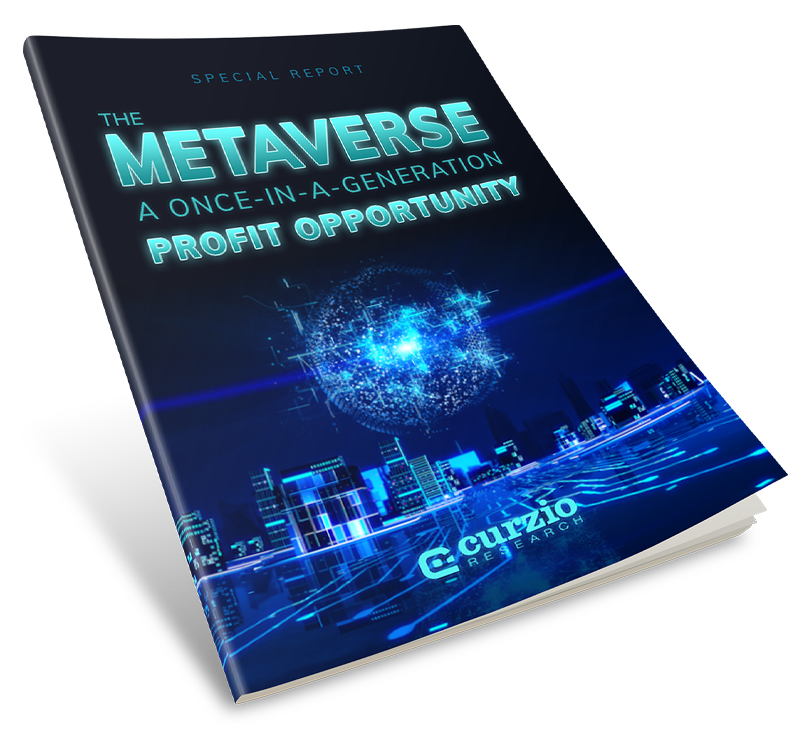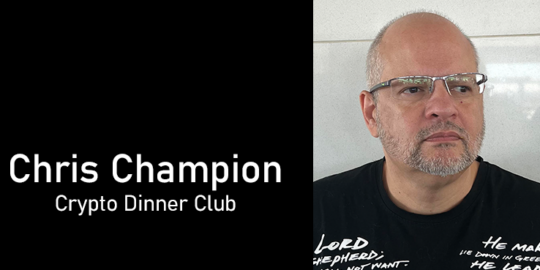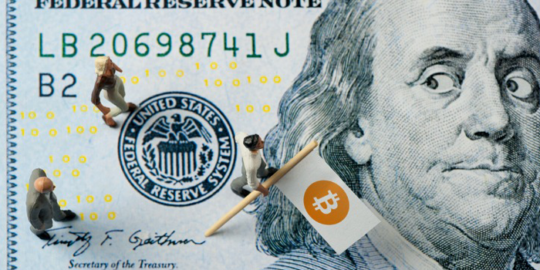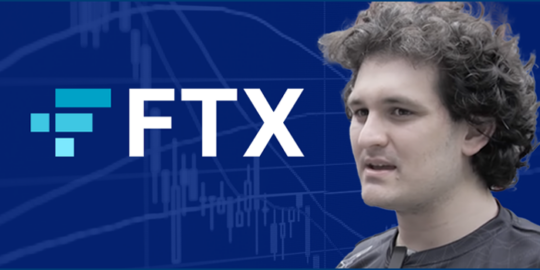Last month Frank told you what he sees as the No. 1 mistake crypto investors make…
He explained how most utility tokens and billion-dollar initial coin offerings (ICOs) were essentially worthless to investors… like buying tokens to play a video game versus actually owning the arcade. (Read the full article here.)
Sure, you’re supporting a business. You may have even been one of the first token holders. But that’s where your investment stops. You see no returns and are stuck holding a token with little to no actual use. Unlike stocks, utility tokens don’t represent ownership or voting rights… and they aren’t backed by cash, gold, or any assets at all.
If the company behind the token fails, you’re out of luck. There’s no cashing out or trading away your tokens. The risks and losses can be significant. Even more so when the company behind the token is a scam to begin with…
Just take a look at tech startup CG Blockchain (CGB) and its BCT token.
If you haven’t heard of BCT (not to be confused with bitcoin’s BTC ticker), it’s probably a good thing. The token was offered by CG Blockchain as a way to fund its ComplianceGuard hardware, tech that was supposed to help hedge funds use blockchain to log transactions and reduce fraud… CGB even bragged about hedge funds that were already running its beta hardware.
CGB ultimately raised over $30 million in its ICO, but drew the SEC’s attention when it neglected to register its token offering. Despite limited regulations, token offerors are required to register or seek an exemption with the agency. Failing to do so can lead to massive fines and penalties. In CGB’s case, there was a reason for the oversight… Doing so would have revealed a scam straight out of a Hollywood movie.
In the course of its investigation, the SEC not only discovered that CGB and its ComplianceGuard were little more than a shell company peddling a useless external hard drive… it also learned that the man behind the fraud was convicted hedge fund swindler Boaz Manor, who’d already served time for securities fraud in 2010.
Despite a lifetime ban from the industry, Manor used a number of aliases and disguises to hide his identity during the two years he spent raising funds for CGB. He dyed his hair, grew a beard… he was even bold enough to appear in a company photo in disguise, while putting out YouTube videos as himself (clean shaven, natural hair color) arguing that the photo wasn’t him…
You can’t make this stuff up!
As of last Friday, Manor’s coconspirator has been apprehended, but Manor himself is still at large (and probably in a terrible disguise).
I’ll admit, the fraud behind CG Blockchain and its BCT token isn’t the norm. But think about it this way… If CGB weren’t a fraud and BCT wasn’t a scam, would those token holders be that much better off?
If ComplianceGuard worked exactly as promised—and CGB became a billion-dollar company—its token would still hold little to no value beyond the CGB universe. BCT holders were told they could eventually use their tokens as credit toward the cost of subscribing to ComplianceGuard, but that’s it. The tokens couldn’t be traded for cash or other assets… and their value as credit wasn’t defined. Fraud or not, BCT investors would come up short.
It’s reasons like these that we keep banging the drum for security tokens here at Token Tracker.
Security tokens—like our own Curzio Equity Owners offering—have the same underlying advantages as other cryptos. They use blockchain technology to create a secure, easily transferable token, but unlike most utility tokens, like BCT, they’re backed by physical assets and can be liquidated for cash. And because they’re backed by real assets, they also offer legally enforceable rights to shareholders.
Security tokens combine crypto technology with the benefits and legal protections of regulated securities like stocks and bonds. They also give investors access to, and partial ownership of, assets they might not otherwise own… like professional athletes, fine art, or even a Ferrari.
If you’re thinking of investing in cryptos or an ICO, do your homework. (In the case of CGB and BCT, there were some red flags.) If the investment is a utility token, take a close look at what holding the token means for you as an investor. Ask yourself why you’re drawn to that particular investment.
If there are no dividends, voting rights, or potential returns, why do you want to invest?
You might not be able to spot the next Boaz Manor before the SEC does, but if a company and its tech sound too good to be true… or if its token has little to use beyond the company and its ICO… your money is better off—and safer—somewhere else.
Daniel Creech is a Curzio Research analyst with over a
decade of experience. He writes on macro trends, large- and small-cap stocks, and
digital securities. He’s a regular contributor to Token Tracker, Curzio Research Advisory, and The Dollar Stock Club.
Editor’s Note: While other investors chase the “next big thing” in cryptos and Wall Street, subscribers to The Dollar Stock Club receive a new, fully vetted investment idea every single week from an industry expert… for a single buck.
No fake mustaches or shady accounting here—each Dollar Stock Club recommendation comes from Frank’s own “intelligence network” of industry analysts and experts.
To learn more about how you can join The Dollar Stock Club, click here.
Daniel Creech is a Curzio Research analyst with over a
decade of experience. He writes on macro trends, large- and small-cap stocks, and
digital securities. He’s a regular contributor to Token Tracker, Curzio Research Advisory, and The Dollar Stock Club.











Last month Frank told you what he sees as the No. 1 mistake crypto investors make…
He explained how most utility tokens and billion-dollar initial coin offerings (ICOs) were essentially worthless to investors… like buying tokens to play a video game versus actually owning the arcade. (Read the full article here.)
Sure, you’re supporting a business. You may have even been one of the first token holders. But that’s where your investment stops. You see no returns and are stuck holding a token with little to no actual use. Unlike stocks, utility tokens don’t represent ownership or voting rights… and they aren’t backed by cash, gold, or any assets at all.
If the company behind the token fails, you’re out of luck. There’s no cashing out or trading away your tokens. The risks and losses can be significant. Even more so when the company behind the token is a scam to begin with…
Just take a look at tech startup CG Blockchain (CGB) and its BCT token.
If you haven’t heard of BCT (not to be confused with bitcoin’s BTC ticker), it’s probably a good thing. The token was offered by CG Blockchain as a way to fund its ComplianceGuard hardware, tech that was supposed to help hedge funds use blockchain to log transactions and reduce fraud… CGB even bragged about hedge funds that were already running its beta hardware.
CGB ultimately raised over $30 million in its ICO, but drew the SEC’s attention when it neglected to register its token offering. Despite limited regulations, token offerors are required to register or seek an exemption with the agency. Failing to do so can lead to massive fines and penalties. In CGB’s case, there was a reason for the oversight… Doing so would have revealed a scam straight out of a Hollywood movie.
In the course of its investigation, the SEC not only discovered that CGB and its ComplianceGuard were little more than a shell company peddling a useless external hard drive… it also learned that the man behind the fraud was convicted hedge fund swindler Boaz Manor, who’d already served time for securities fraud in 2010.
Despite a lifetime ban from the industry, Manor used a number of aliases and disguises to hide his identity during the two years he spent raising funds for CGB. He dyed his hair, grew a beard… he was even bold enough to appear in a company photo in disguise, while putting out YouTube videos as himself (clean shaven, natural hair color) arguing that the photo wasn’t him…
You can’t make this stuff up!
As of last Friday, Manor’s coconspirator has been apprehended, but Manor himself is still at large (and probably in a terrible disguise).
I’ll admit, the fraud behind CG Blockchain and its BCT token isn’t the norm. But think about it this way… If CGB weren’t a fraud and BCT wasn’t a scam, would those token holders be that much better off?
If ComplianceGuard worked exactly as promised—and CGB became a billion-dollar company—its token would still hold little to no value beyond the CGB universe. BCT holders were told they could eventually use their tokens as credit toward the cost of subscribing to ComplianceGuard, but that’s it. The tokens couldn’t be traded for cash or other assets… and their value as credit wasn’t defined. Fraud or not, BCT investors would come up short.
It’s reasons like these that we keep banging the drum for security tokens here at Token Tracker.
Security tokens—like our own Curzio Equity Owners offering—have the same underlying advantages as other cryptos. They use blockchain technology to create a secure, easily transferable token, but unlike most utility tokens, like BCT, they’re backed by physical assets and can be liquidated for cash. And because they’re backed by real assets, they also offer legally enforceable rights to shareholders.
Security tokens combine crypto technology with the benefits and legal protections of regulated securities like stocks and bonds. They also give investors access to, and partial ownership of, assets they might not otherwise own… like professional athletes, fine art, or even a Ferrari.
If you’re thinking of investing in cryptos or an ICO, do your homework. (In the case of CGB and BCT, there were some red flags.) If the investment is a utility token, take a close look at what holding the token means for you as an investor. Ask yourself why you’re drawn to that particular investment.
If there are no dividends, voting rights, or potential returns, why do you want to invest?
You might not be able to spot the next Boaz Manor before the SEC does, but if a company and its tech sound too good to be true… or if its token has little to use beyond the company and its ICO… your money is better off—and safer—somewhere else.
Editor’s Note: While other investors chase the “next big thing” in cryptos and Wall Street, subscribers to The Dollar Stock Club receive a new, fully vetted investment idea every single week from an industry expert… for a single buck.
No fake mustaches or shady accounting here—each Dollar Stock Club recommendation comes from Frank’s own “intelligence network” of industry analysts and experts.
To learn more about how you can join The Dollar Stock Club, click here.